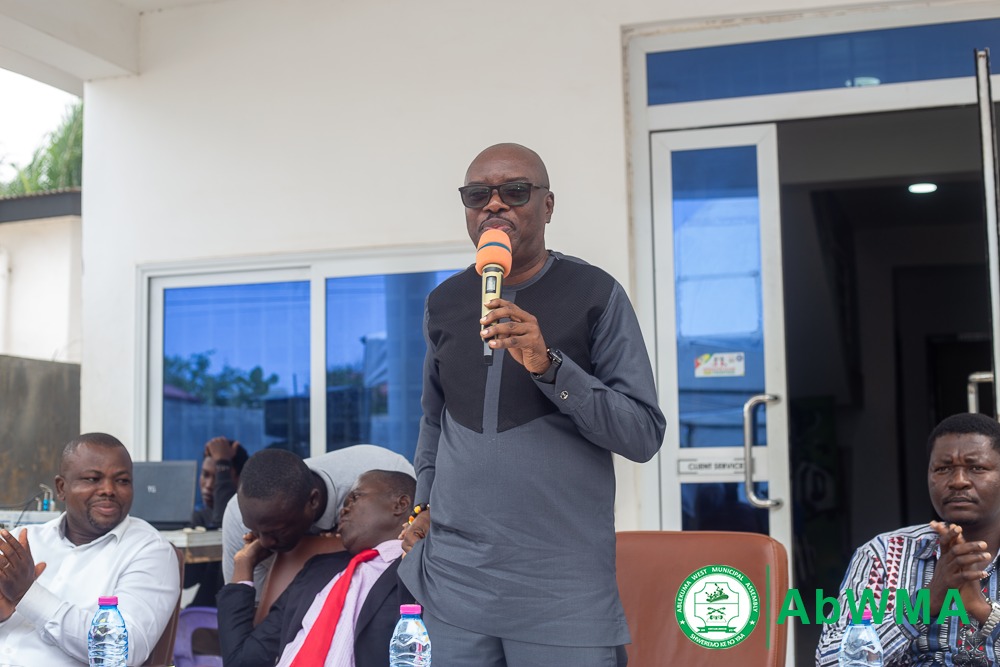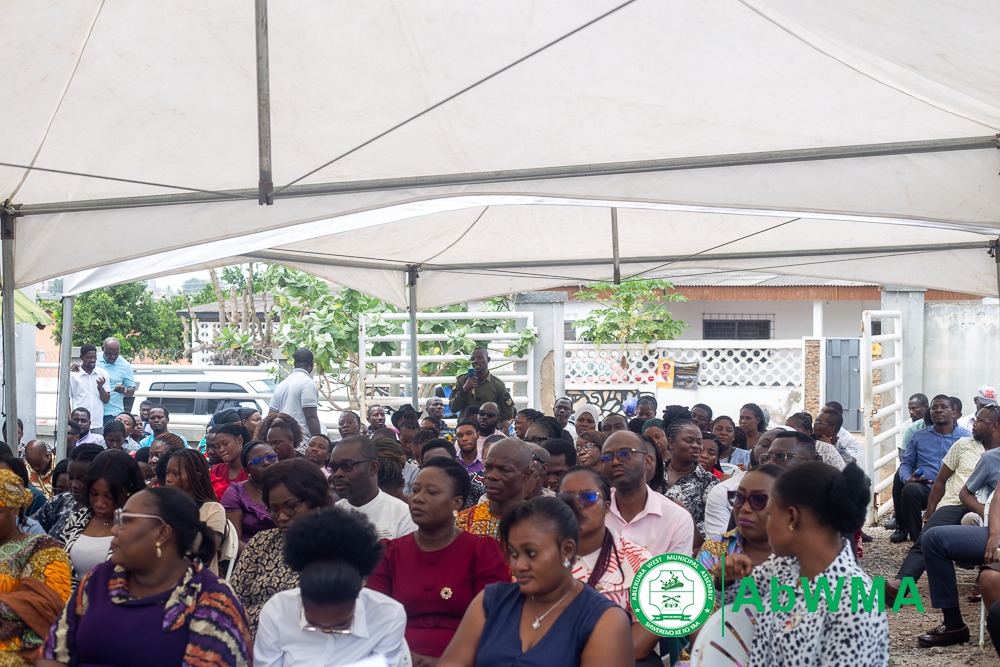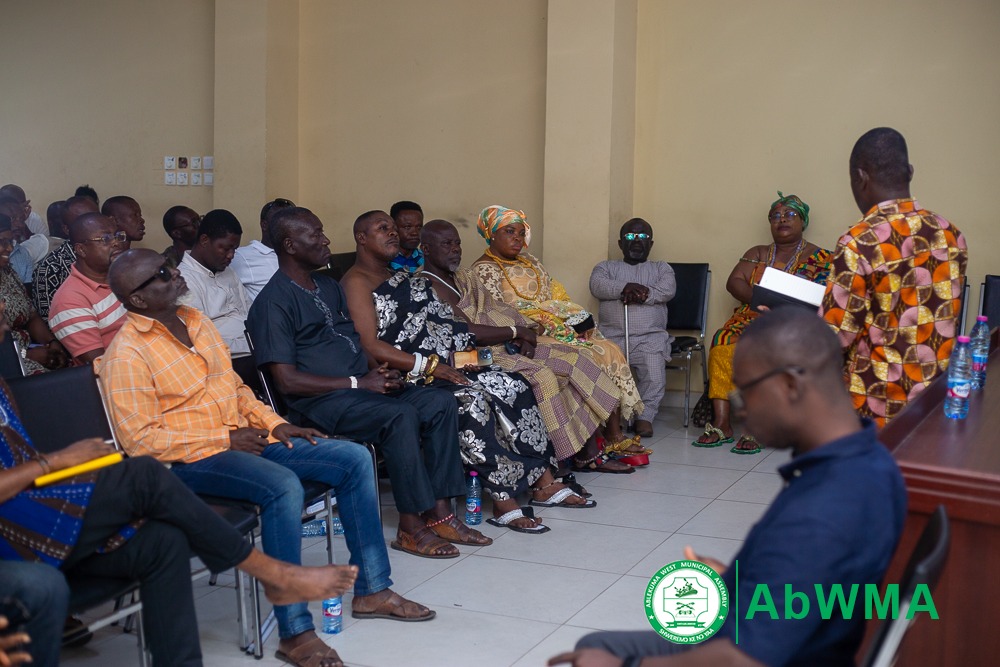
The Ablekuma West Municipal Assembly held a Staff Durbar on Thursday, 17th July 2025, bringing together management and staff across all departments for an important engagement session aimed at strengthening internal communication, promoting teamwork, and enhancing service delivery.
The durbar provided a platform for open dialogue between leadership and staff, allowing for the discussion of key operational issues, challenges, and suggestions for improvement. It also served as an opportunity to share updates on ongoing projects, policies, and strategic plans of the Assembly.
The Municipal Chief Executive, Mr. George Kpakpo Allotey, addressed the gathering and commended staff for their dedication and commitment to duty. He emphasized the importance of collaboration, discipline, and accountability in achieving the Assembly’s developmental goals. Heads of departments also took turns to present reports and engage staff on ways to improve performance and service delivery.
The atmosphere was cordial and interactive, with staff members raising concerns, offering suggestions, and receiving responses from management in a transparent and respectful manner. The durbar ended on a positive note, with renewed commitment from all present to work together in building a more efficient and responsive Assembly.

The successful organization of the Staff Durbar reflects the Assembly’s dedication to fostering a culture of openness, teamwork, and continuous improvement in local governance.















